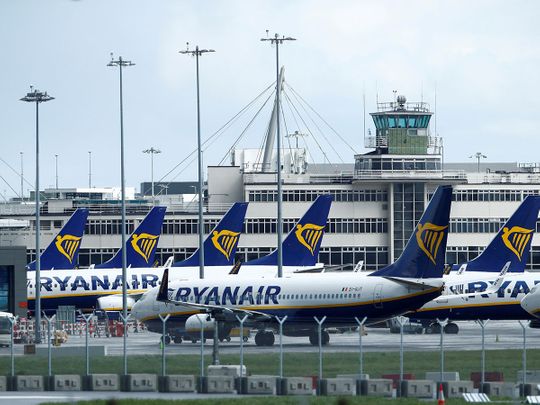
Dublin: Ryanair Holdings and Wizz Air Holdings will take away the voting rights of shareholders outside of the European Union to ensure they comply with the bloc's airline ownership rules after the Brexit transition.
All non-EU nationals will lose their voting rights from January 1, Irish discounter Ryanair said. Hungarian rival Wizz said separately it would take the same step, disenfranchising a majority of its shareholders.
Airlines with a large constituency of British shareholders risk falling out of compliance with EU ownership rules at year-end. The bloc requires airlines that operate routes between two destinations within its borders to be majority controlled by EU nationals. UK citizens will no longer count as EU-based with the end of the Brexit transition.
Drastic cut downs?
Without any action, London-traded Wizz said that more than 80 per cent of its ownership would reside outside of the EU. It said about 60 per cent of its shareholder base would receive restricted-share notices barring them from voting or attending shareholder meetings.
Ryanair said Britons would join other non-EU nationals in not being able to buy its shares, a policy in place since 2002. The issue also affects the rights of airlines like British Airways owner IAG SA and EasyJet to operate within the bloc.
Some leniency up ahead
In the Brexit accord reached last week, the sides agreed to explore a liberalization of the ownership rules over the next 12 months, potentially insulating carriers from challenges based on their ownership structure.
IAG, which also owns Iberia and Vueling, is incorporated in Spain but has significant UK, US and Qatari ownership. It's said it will modify the ownership of its Spanish airlines as required to comply with the rules. Under the current set-up, their status as EU-controlled could be tested.
UK-based EasyJet said on December 23 that it would suspend voting rights of some holders on a "last in, first out" basis if necessary to lift its EU voting base above 50 per cent. At the time, it was at 47 per cent, excluding the UK.








